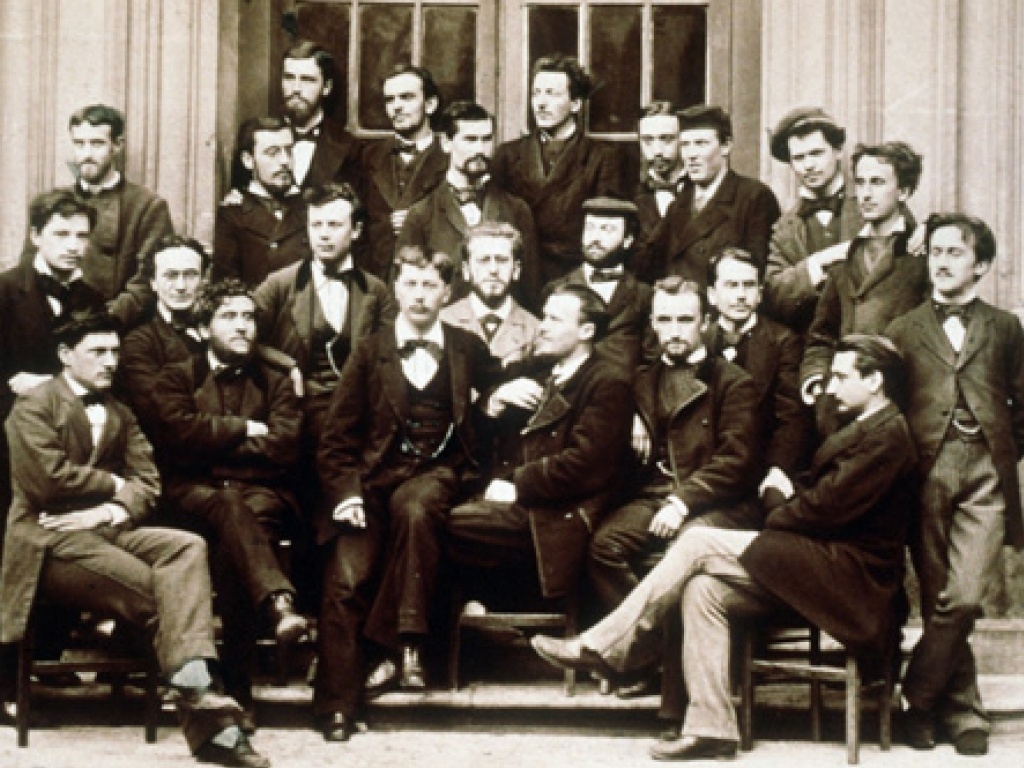The Philosopher Who Was Too Popular

In the early twentieth century, Henri Bergson had a problem. His philosophy lectures were too popular:
On average, 700 people would attempt to squeeze into a room designed for 375. It was suggested that his classes be moved to the Grand Amphithéâtre of the Sorbonne or even to the Palais Garnier. Abroad too, Bergson drew huge crowds. The talks he delivered in London in 1911 filled venues to their ‘utmost capacity’, and he was greeted to the sound of ‘loud cheers’. Two years later, a visit to New York caused the first ever traffic jam on Broadway.
Bergsonmania had another problem, too: many of its most devout adherents were women.
In France, Bergson’s female followers were given derogatory nicknames such as caillettes, which designated a type of pâté, a kind of small bird, and in this context, a frivolous babbling woman, and snobinettes, which conveyed the common assumption that these women were ignorant socialites more interested in being seen at a fashionable event than in learning about philosophy. In 1912, Bergson was preparing to leave on an eagerly anticipated tour of the United States that would take place the following year. A writer for the magazine La vie Parisienne - known for its literary critiques, erotic illustrations, satirical takes on art, culture, politics and the indiscretions of the Parisian elite - scoffed: ‘How will our snobinettes quench their thirst for metaphysics?’ Which professor, the reporter wondered, would these ‘anxious women’ choose to replace Bergson? Surely, their decision would be based on the convenience of the time slot of the lectures rather than on their content.
The female audience was depicted as a crowd of posers, too frivolous to develop any profound interest in philosophical matters, and thus undeserving of the precious seats at the Collège de France. Many commentators thus dismissed the Bergsoniennes’ enthusiasm for philosophy as nothing more than the bourgeois attempts of mondaines (socialites) to raise their social standing. Such ideas were embedded within a long tradition of French satire at the expense of learned women…
The presence of women in a traditionally exclusively masculine space was regarded at best as a source of ridicule, at worst as a nuisance (for instance, some worried that, by their mere presence, the Bergsoniennes were robbing male philosophy students of their rightfully earned seats). Others took this phenomenon to be the sign of something more serious. The fact that so many women were drawn to Bergson’s philosophy perhaps said something about Bergson as a thinker. Indeed, traits traditionally associated with femininity, such as irrationality and sentimentality, clashed with the traditionally masculine qualities deemed necessary to be a good philosopher. Some of Bergson’s most serious adversaries began arguing that Bergson’s success among women was no accident. They believed that the reason the most irrational beings of all, women, were so enthusiastic about Bergson’s ideas was that Bergson’s philosophy was a philosophy of the irrational.
Bergson himself did not enjoy his celebrity status, but it is noteworthy that he inspired a generation of French feminist thinkers, including Simone De Beauvoir, who largely differed from his metaphysical positions but adopted parts of his popular, literary style (in both writing and public lectures) as a way to connect with audiences outside of the academy’s cloisters.
Philosophy and public intellectual life changed tremendously during the years of Bergson’s activity, not least because his own style and that of his admiring fans helped push matters along.





Stay Connected